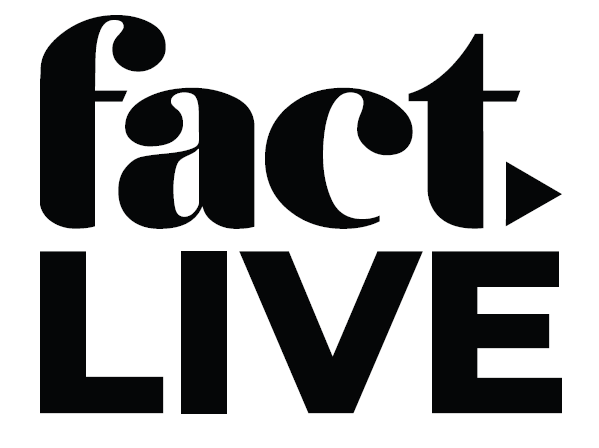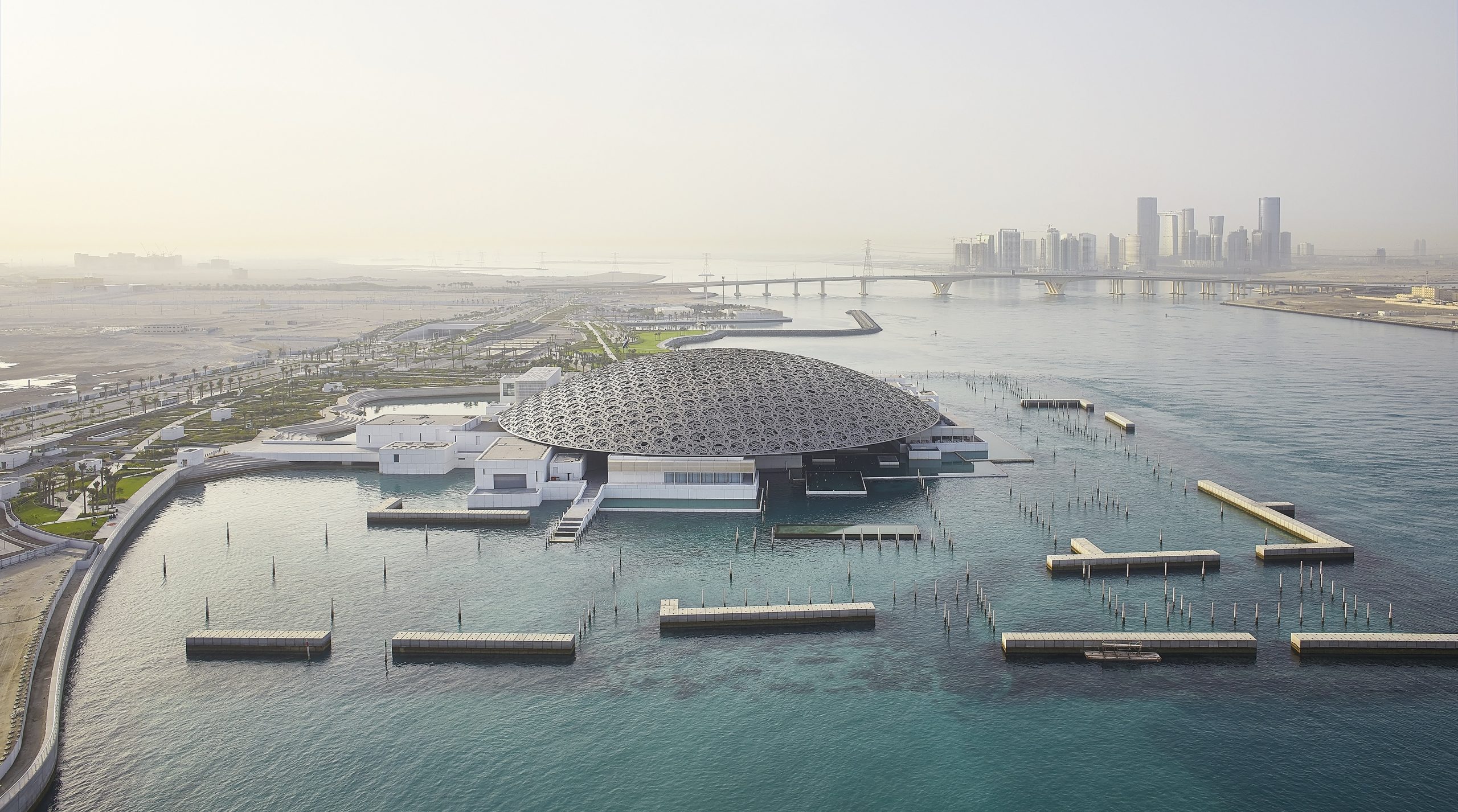The Louvre Abu Dhabi celebrates its third anniversary today with the launch of its first original short film—The Pulse of Time—which reflects the museum’s experimental approach to the digital presentation of its collections.
In the face of 2020’s unprecedented adversity, the museum met the challenges borne of the global pandemic with heightened creativity, commissioning its first short film, The Pulse of Time, and launching more than 20 new digital initiatives, drawing millions of visitors to its growing online community.
Louvre Abu Dhabi’s fourth year promises to be equally dynamic, with the museum implementing fresh programmes and unveiling exciting new acquisitions and loans in its galleries.
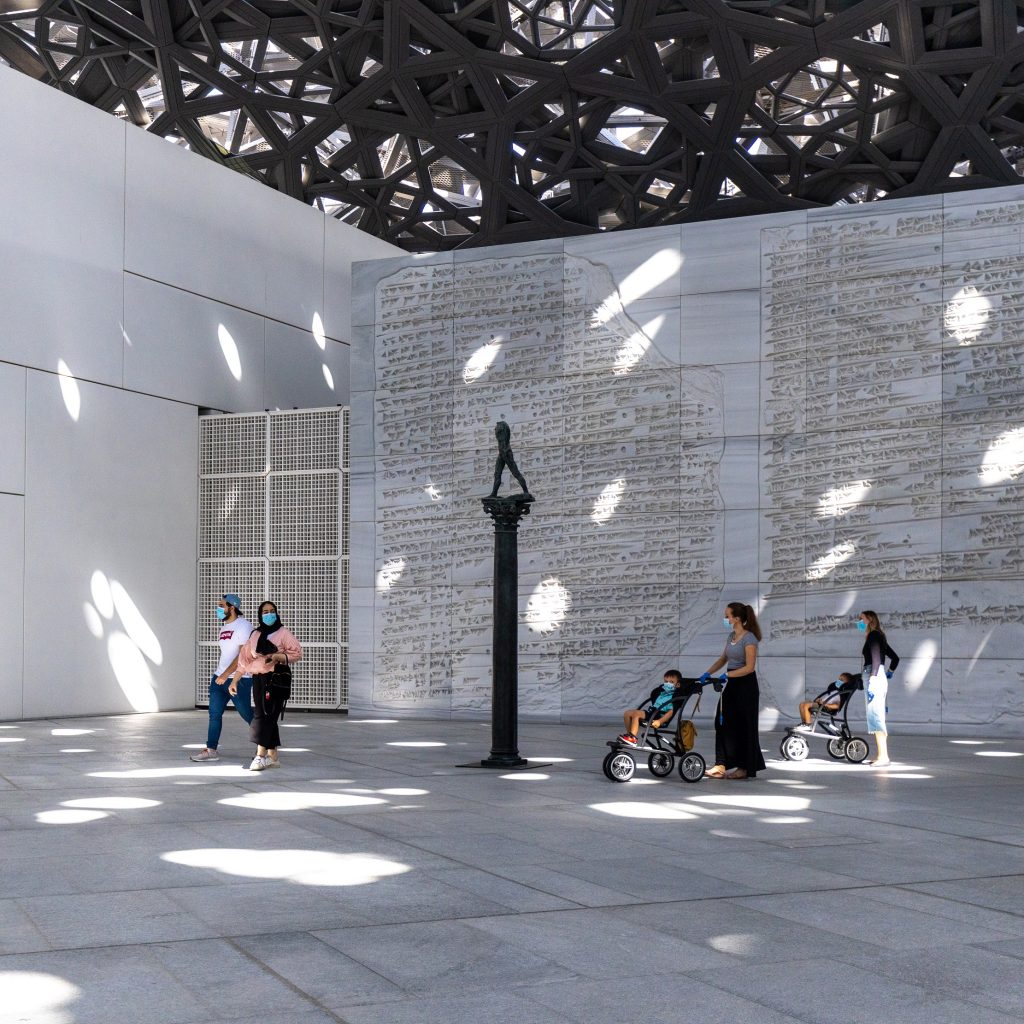
The Pulse of Time – Louvre Abu Dhabi’s original short film:
To mark its third anniversary, Louvre Abu Dhabi will premiere its first original short film, The Pulse of Time, a 40-minute audio-visual journey bringing to life a story of humanity through art. The film’s compelling storytelling, videography and original music composition takes viewers on an immersive journey via the 12 chapters of the museum’s galleries. It explores the history of human creativity through more than 200 artworks, revealing stories of cultural connections from pre-history to contemporary times. Well-known figures in three languages narrate the film—Arabic, by Emirati producer, TV presenter and actor Saoud Al Kaabi, known for his role in the Emirati film City of Life (2009); English, by British actor, screenwriter, and film director Charles Dance, known for playing Tywin Lannister in HBO’s Game of Thrones (2011); and French, by French-Swiss actress Irène Jacob, known for her role in Three Colours: Red (1994). The sound creation was commissioned and jointly produced by Alexandre Plank, Radio Producer for the French National Radio channel France Culture and two-time winner of the PRIX ITALIA international competition for radio and TV, and Antoine Richard, winner of the same prize.
Following the premiere on Louvre Abu Dhabi’s YouTube channel, The Pulse of Time will be available on the Louvre Abu Dhabi website from 12 November.
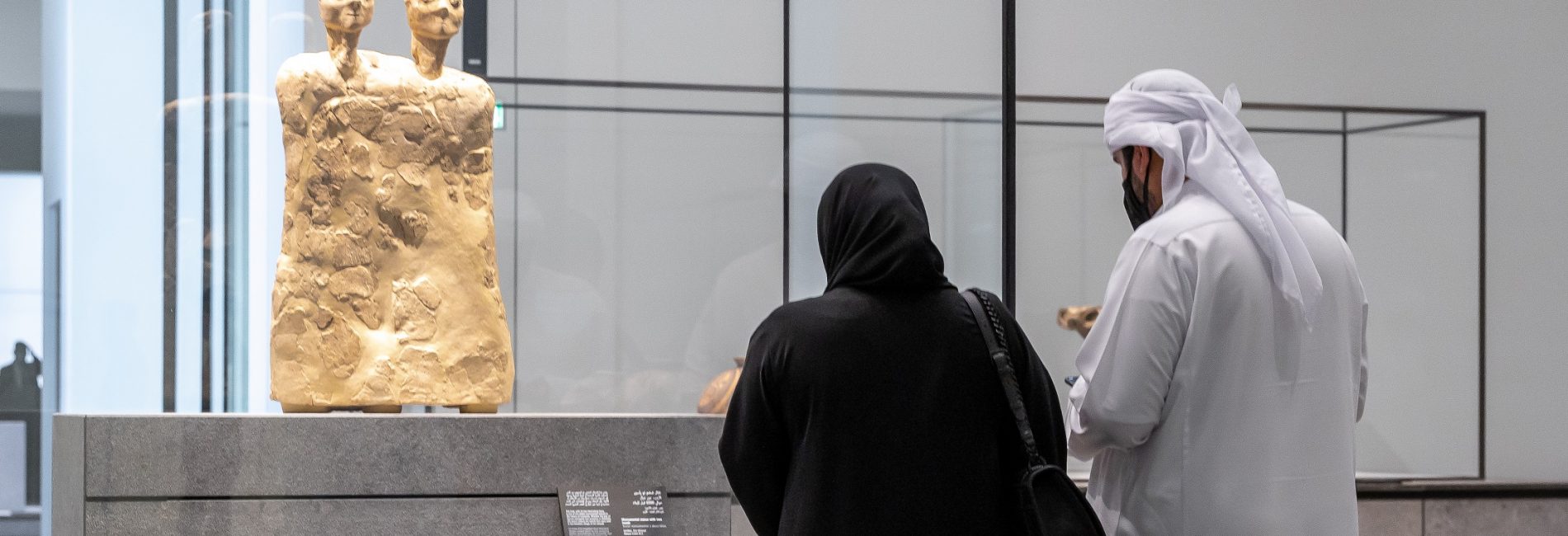
The Galleries:
Louvre Abu Dhabi’s curatorial strategy is to tell stories of cultural connections. These connections are expressed through the juxtaposition of works across cultures, geographies, and time. As part of the museum’s third annual rotation of artworks in the galleries, masterpieces on loan from Musée d’Orsay include, Edgar Degas’ The Bellelli family (1858-1869), Pierre-Auguste Renoir’s Railway bridge in Chatou (1881), Vincent Van Gogh’s The caravans, a bohemian camp (1888), Claude Monet’s Haystacks, end of summer (1891), Eugène Louis Gillot’s The Arrival of the “La Fayette” in New York (early 20th century), Osman Hamdi Bey’s Old man before children’s tombs (1903) and Pierre Bonnard’s Southern setting, Le Cannet (1928). Alongside these, the museum has installed several maps and precious 14th to 18th-century manuscripts loaned by Bibliothèque Nationale de France. The manuscripts from Syria, France, Egypt, India and Iran of sacred and scientific texts include scriptures from the foundations of the three Abrahamic faiths – Judaism, Christianity and Islam.
Several new acquisitions are joining Louvre Abu Dhabi’s growing permanent collection, including many artefacts in the earlier chapters of the museum’s chronological timeline of human creativity. Sumerian Statue of a Female Worshipper (3rd century Mesopotamia), adds to the discourse on religious beliefs in the museum’s introductory gallery and will go on display alongside Egyptian Statue of a Kneeling Man (ca. 4th-7th century Egypt). A Jain sculpture of a Standing Jina (11th century India) is a new addition to the museum’s gallery exploring Asian trade routes, and the exceptional new Feline-shaped Incense Burner (11th century Central Asia) stands head to head with Louvre Abu Dhabi’s renowned Lion-shaped aquamanile (13th century Northern Germany).
Throughout the coming months, visitors will also be able to discover a number of new acquisitions in the later chapters of the museum’s path, including The Adoration of the Magi by Pieter Coecke van Aelst (ca. 1523), a biblical portrait of Saint-Joseph (also called Lo Spagnoletto) by Spanish painter Jusepe de Ribera (before 1647), a series of Eight Paintings of Foreign Dignitaries by an anonymous artist (18th century China), as well as Marc Chagall’s exquisite Between Darkness and Night (1938-43).
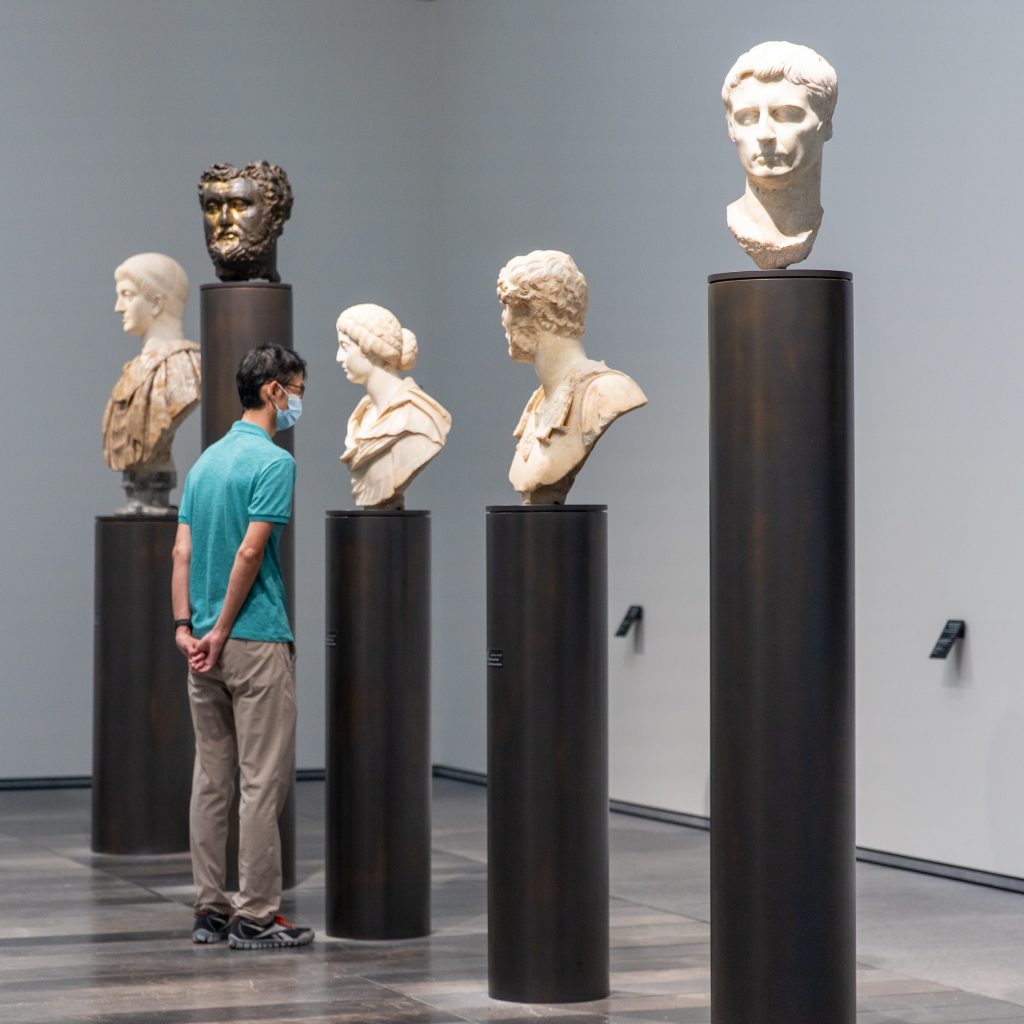
“Reframing Museums” Symposium: 16 to 18 November 2020:
Louvre Abu Dhabi seeks to be a thought-leader in defining how museums go about agilely adapting to new needs of audiences. Co-convened with Saadiyat Island neighbouring institution NYU Abu Dhabi from 16 to 18 November 2020, the virtual symposium, Reframing Museums, comes at a time when the future of museums as well as arts and cultural institutions around the world are being re-examined. The symposium will harness the collective contributions of global scholars, academics, artists, and international museum experts to discuss, interrogate, and reimagine the art museum of the future. Together, attendees will explore the three institutional pillars that typically define museums: Collections, Building/Site, and People.
Manuel Rabaté, Director of Louvre Abu Dhabi, said: “In just three years since we welcomed the first visitors through Louvre Abu Dhabi’s doors, I could not be more proud of what we have accomplished. This past year has certainly been defined by the creation of new opportunities from great challenges. From the very inception of the museum, our mission has been to celebrate stories of cultural connections, to help visitors find common threads through art, across cultures, geographies, and time. This purpose has never been more relevant, as we look to new roles and models of what a museum can be. The acquisitions and loans now on view in our galleries are a testament to the strength of our partnerships— from the heart of this region to Paris, and around the world —continually helping us to create moments of discovery and reward curiosity in each of our visitors. We are eager to welcome you back to our galleries, whether physically or virtually, and we hope you will all join us in celebrating this third anniversary.”
GO: Visit www.louvreabudhabi.ae for more information.
